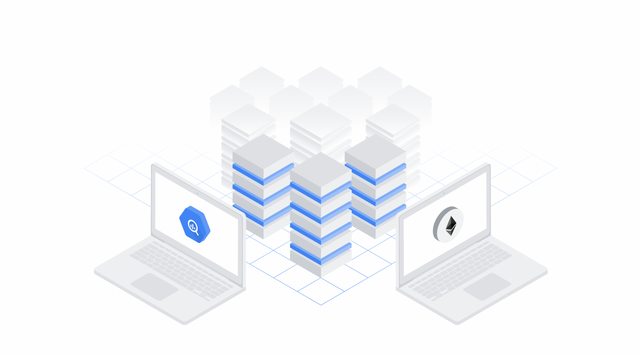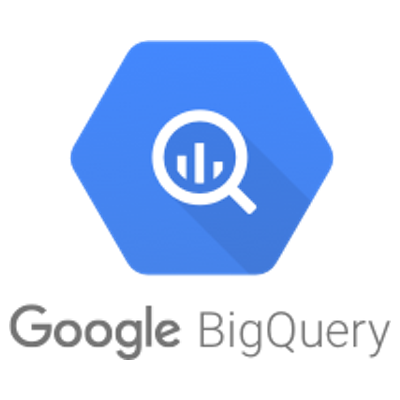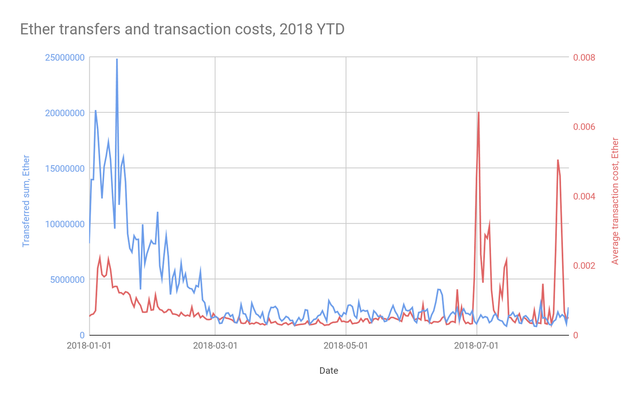Ethereum in BigQuery: a Public Dataset for smart contract analytics

Ethereum and different cryptographic forms of money have caught the creative ability of technologists, lenders, and financial specialists. Advanced monetary forms are just a single use of the hidden blockchain innovation. Not long ago, we made the Bitcoin dataset freely accessible for examination in Google BigQuery. Today we're making the Ethereum dataset accessible.
Like its forerunner, Bitcoin, you may think about the Ethereum blockchain as a changeless disseminated record. Be that as it may, maker Vitalik Buterin expanded its arrangement of capacities by including a virtual machine that can execute self-assertive code put away on the blockchain as brilliant contracts.
With respect to the framework engineering, Ethereum looks like Bitcoin in that it principally serves to record unchanging exchanges. Both are basically OLTP databases, and give little in the method for OLAP (investigation) usefulness. Be that as it may, the Ethereum dataset is remarkably unmistakable from the Bitcoin dataset:
The Ethereum blockchain's essential crypto-financial unit of significant worth is Ether, while the Bitcoin blockchain's unit of significant worth is Bitcoin. Notwithstanding, the greater part of significant worth exchange on the Ethereum blockchain is made out of supposed tokens. Tokens are made and overseen by keen contracts.

Ether esteem exchanges are exact and coordinate, looking like bookkeeping record charges and credits. This is as opposed to the Bitcoin esteem exchange system, for which it tends to be hard to decide the adjust of a given wallet address.
Addresses can be wallets that hold adjusts, as well as contain brilliant contract bytecode that permits the automatic making of understandings and programmed activating of their execution. A total of composed shrewd contracts could be utilized to fabricate a decentralized self-governing association.
The Ethereum blockchain information are currently accessible for investigation with BigQuery. Every authentic datum are in the ethereum_blockchain dataset, which refreshes day by day. The Ethereum ETL venture on GitHub contains all source code used to separate information from the Ethereum blockchain and stack it into BigQuery—we invite more benefactors and more blockchains!
Why make Ethereum blockchain information accessible on Google Cloud?
While the Ethereum blockchain shared programming has an API for a subset of normally utilized irregular access capacities (for instance: checking exchange status, looking into wallet-exchange affiliations, and checking wallet adjusts, for instance), API endpoints don't exist for simple access to the greater part of the information put away on-chain.
Maybe more imperatively, API endpoints likewise don't exist for review the blockchain information in total. Here's an illustration graph that demonstrates the aggregate Ether exchanged and normal exchange cost, amassed by day:
A perception like this (and the supporting database question) is valuable for settling on business choices, for example, organizing changes to the Ethereum engineering itself (is the framework running near limit and due for a redesign?) to monetary record modifications (how rapidly can a wallet be rebalanced?).

BigQuery has solid OLAP abilities to help this sort of investigation, specially appointed and all in all, without requiring extra API usage.
Appropriately, we constructed a product framework on Google Cloud that:
1-Synchronizes the Ethereum blockchain to PCs running Parity in Google Cloud.
2-Performs an every day extraction of information from the Ethereum blockchain record, including the aftereffects of keen contract exchanges, for example, token exchanges.
3-De-standardizes and stores date-divided information to BigQuery for simple and practical investigation.